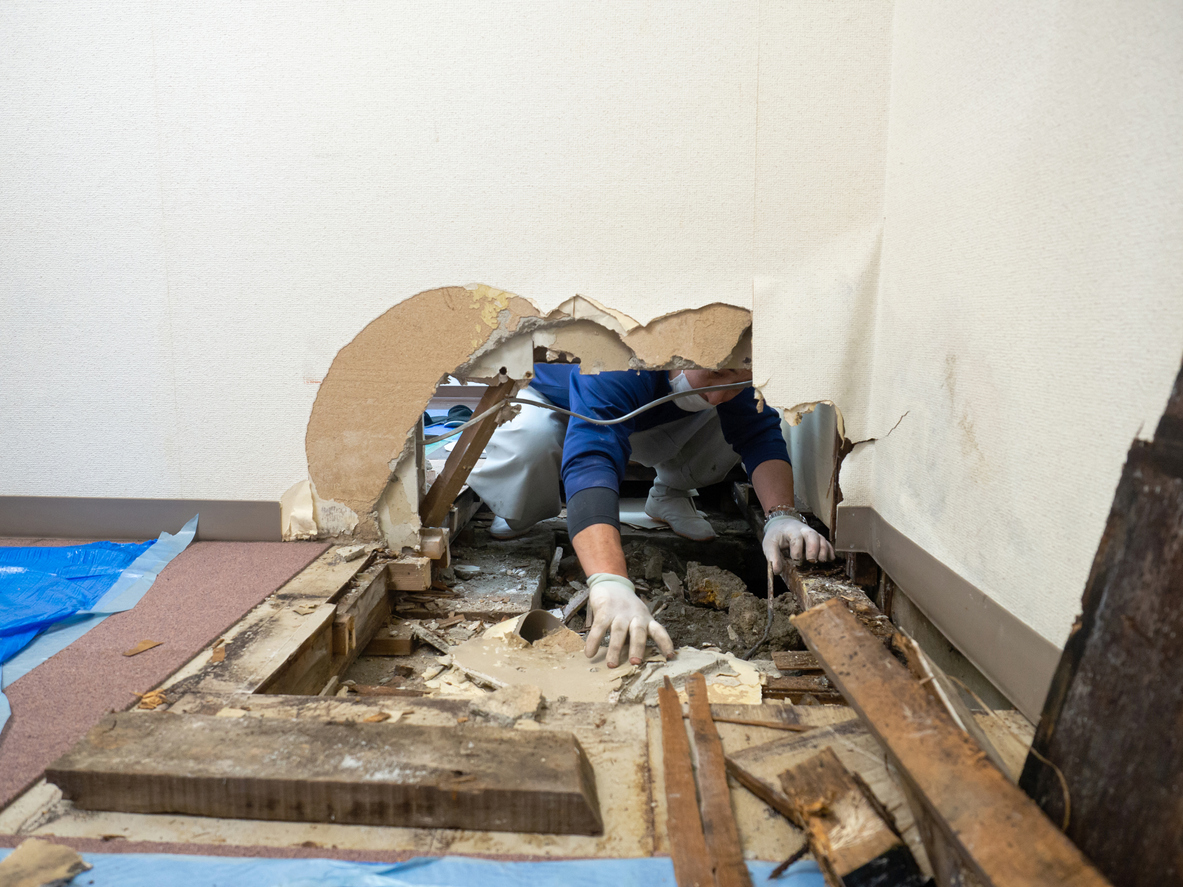Limited Water Damage Endorsement Will Not Limit the Liability for the “Tear Out” Costs

Cast iron pipe systems are actively corroding across the country. Florida commercial and residential properties are even more susceptible to corrosion due to Florida’s salt and moisture-rich environment. Unfortunately, insurance companies often try to deny pipe damage claims based on carefully worded exclusions such as “wear and tear” or claiming the pipes have reached the natural end of their lifespan. Even in accepted claims, insurance companies will often lowball a policyholder, leaving them with costly excess repair fees that they are unprepared to take.
In a recent case,1 the Fifth District Court of Appeal reviewed an order granting summary judgment in favor of the policyholder. Similar to most cast iron pipe claims, the policyholders had an overflow of water in their home stemming from deteriorated cast-iron pipes, which caused damage to the property. The insurance company acknowledged coverage but only paid $10,000 under the Limited Water Damage Coverage (“LWD Endorsement”).
The policyholder argued that additional coverage existed, claiming they were owed more for the “tear out” to replace the undamaged concrete slab, which was necessary to access the pipes which caused the loss. The insurance company disagreed, arguing that the $10,000 LWD limit applied to both the water damage and the “tear out” cost. Therefore, no additional insurance benefits were owed.
The appellate court disagreed, relying on the plain meaning of the policy language, “the limit of liability for all damage to be covered property provided by this endorsement is $10,000 per loss,” in determining the “tear out” costs were not “damage” but that “tear out” costs are referenced as an item to be covered as part of a loss under the ensuing loss for water damage provision. Therefore, the “tear out” would be considered part of the limits for the dwelling damage.
The appellate court also concluded that there was no sublimit for the “tear out” costs in the LWD, which the insurer could have easily put in the policy. Finally, the appellate court held that although the LWD could be read to include “tear out” costs, any ambiguity is construed against the insurer. Therefore, the appellate court affirmed summary judgment in favor of the policyholder.
While the LWD endorsement limited coverage for the water damage, it did not provide a limit for “tear out.” It bears repeating: “[W]hen one interprets an insurance policy, grants of coverage must be interpreted broadly in favor of the existence of insurance while limitations thereon, or exclusions, must be interpreted narrowly against the insurance company.”2
If Security First intended to limit “tear out,” it should have done so by unambiguously stating that the limit applies to “direct physical loss by discharge of water from within a plumbing system” and to the “the cost of tearing out and replacing any part of a building necessary to repair the system.”
In fact, it’s important to note that Security First knows how to clearly and unambiguously include the cost of tear out and replacement in the LWD if that had been its intention. For example, the primary Policy contains a $ 10,000 sublimit for Fungi, Mold, Wet or Dry Rot, or Bacteria. The mold limitation specifically states the $ 10,000 sublimit includes: “The cost to tear out and replace any part of the building or other covered property as needed to gain access to the ‘fungi’, mold, wet or dry rot, or bacteria.”
Takeaways:
If the insurance company wants certain terms in the policy, it must explicitly put those terms in the policy.
LWD Endorsement will not limit the liability for the “tear out” costs, which is usually one of the most costly items to be done in these claims.
Thought of the day: “I dwell in possibility.” – Emily Dickinson
________________________________________
1 Security First Ins. Co. v. Vazquez, No. 5D20-2528 (Fla. 5th DCA Feb. 18, 2022).
2 Cochran v. State Farm Mut. Auto. Ins. Co., 298 So. 2d 173 (Fla. 5th DCA 1974).



